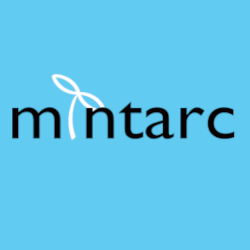OwnCloud
From Mintarc Forge
ownCloud is an open-source file synchronization, sharing, and collaboration platform designed to provide organizations and individuals with full control over their data. It serves as a self-hosted alternative to proprietary cloud services like Dropbox, Google Drive, and Microsoft OneDrive, offering privacy, security, and flexibility. With its modular architecture and extensive feature set, ownCloud is widely adopted by enterprises, educational institutions, and governmental organizations seeking a secure and customizable solution for managing sensitive data.
At its core, ownCloud allows users to store, access, sync, and share files across devices through a web interface, desktop clients, or mobile apps. It supports integration with various storage backends such as local storage, FTP servers, Amazon S3, Dropbox, and Microsoft SharePoint. This enables users to consolidate data from multiple sources into a single interface while maintaining control over where the data resides. ownCloud's open architecture is extensible through APIs and plugins, allowing developers to tailor the platform to specific needs or integrate it with existing systems.
One of ownCloud's features is its robust security framework. It employs multi-layered encryption to protect data at rest and in transit. Server-side encryption ensures that files stored on the server are encrypted using industry-standard algorithms like AES-256. Additionally, end-to-end encryption can be enabled for highly sensitive files, ensuring that only authorized users with the correct decryption keys can access the content. Encryption keys can be managed internally or integrated with external systems like Hardware Security Modules (HSMs) for compliance with regulatory requirements. Communication between clients and servers is secured using HTTPS with TLS protocols to prevent eavesdropping or data interception during transmission.
Privacy is a cornerstone of ownCloud's design philosophy. Unlike proprietary cloud services that often store user data on third-party servers, ownCloud gives users the option to self-host their instance on trusted infrastructure. This ensures compliance with data sovereignty laws and eliminates reliance on external service providers. Organizations can also implement granular access controls using Active Directory (AD), LDAP, or OpenID Connect for user authentication and authorization. Multi-factor authentication (MFA) adds an additional layer of security by requiring users to verify their identity through one-time passwords (TOTP) or biometric methods.
Collaboration is another key focus of ownCloud. Its integration with tools like OnlyOffice enables real-time co-editing of documents directly within the platform. Users can share files via public links protected by passwords and expiration dates or collaborate securely with external partners using guest accounts. Federated Cloud Sharing allows seamless file sharing between different ownCloud instances, making it ideal for multinational organizations or distributed teams.
ownCloud also includes administrative tools for managing large-scale deployments. Features like the File Firewall enable administrators to enforce custom rules based on criteria such as IP address, device type, or time of day to block unauthorized access attempts. The platform provides detailed logging and monitoring capabilities for auditing user activities and system performance. Administrators can configure file lifecycle policies to automatically archive or delete outdated files, ensuring compliance with data retention regulations.
Scalability is another strength of ownCloud. Its architecture supports high-performance deployments capable of handling thousands of concurrent users and large datasets. The introduction of "ownCloud Infinite Scale," a next-generation version built on modern microservices architecture written in Go instead of PHP, further enhances scalability while improving performance and reducing resource consumption.
Despite its many advantages, ownCloud requires careful configuration and maintenance to ensure optimal security and functionality. Vulnerabilities in older versions have highlighted the importance of regular updates and adherence to best practices for securing self-hosted environments.
ownCloud is an open-source platform that combines enterprise-grade file synchronization and sharing capabilities with robust security measures and extensive customization options. Its emphasis on privacy through self-hosting and encryption makes it an ideal choice for organizations prioritizing data sovereignty and compliance while offering seamless collaboration tools for modern workflows.
